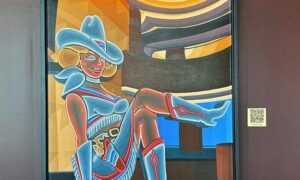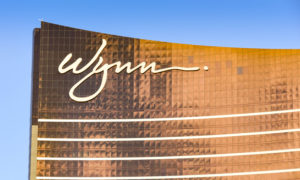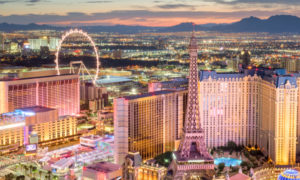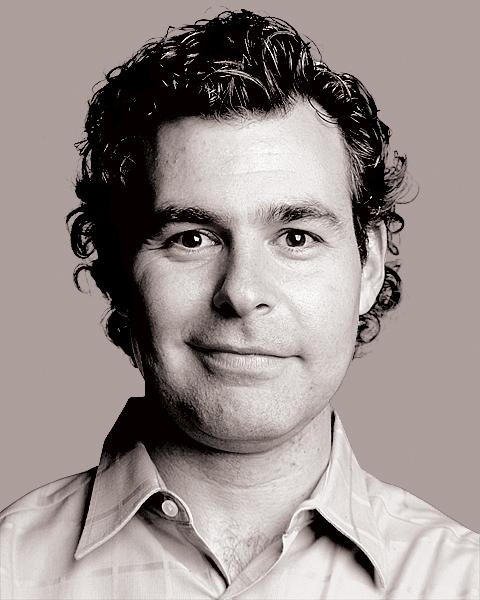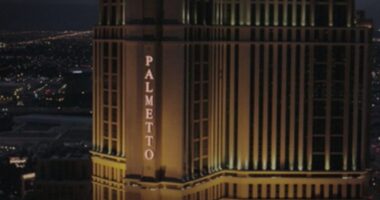
The Emmy-winning comedy “Hacks” on HBO Max launched its second season last week, beginning with its two lead characters departing from Las Vegas. They embarked on a journey to polish some of the new content for Jean Smart’s character, the stand-up comedian Deborah Vance, away from the glitz and glamour of the Strip.
It’s fortunate because it’s astonishing how poorly the writers understand the city, despite the show being primarily set and supposedly centred around the business of Vegas. It also appears that they harbour a significant dislike for it.
The show’s storyline mirrors this concept: Ava, a petulant GenZ Hollywood scriptwriter who’s career hit rock-bottom due to a controversial tweet, is reduced to such a state where the only job she can secure is writing for Vance, Las Vegas’s top stand-up comedian.
In simpler terms, the cream of the crop in Vegas is viewed as not worthy by any self-respecting dreamer from L.A. It’s as if we’ve time-travelled to the mid-1980s when the Strip was not considered a top-notch entertainment hub, contrary to its current status as a premier destination in the gambling world.
“Hacks” leaves you pondering about the year it is set, but all signs suggest that it is intended to be a contemporary creation. Here are seven of the show’s most significant flaws.
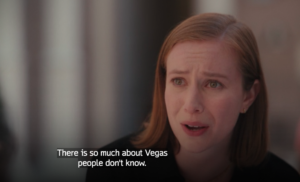
No. 1: The Steve Wynn of it all
“Hacks” is intended to depict female empowerment and bonding. The character of Deborah Vance serves as a representative for Joan Rivers and other pioneering women. Ava’s character growth primarily focuses on recognizing and valuing the numerous ways in which the sharp-witted Vance challenged a sexist system to clear a path for women like her.
How is it that HBOMax, which aired the first season in 2021, consistently refers to Wynn as a prominent Vegas tycoon despite his expulsion from the city in 2018 due to a #MeToo scandal? This is the scandal where he was convincingly accused of a long history of sexual harassment.
It’s doubtful that Wynn, who has divested and departed from Wynn Resorts, could ever secure a gambling license again. His previous company was obligated to demonstrate the extent of its separation from him to maintain its casino in the Boston area.
Despite this, Wynn is mentioned a minimum of four times in the first season and plays a crucial role in a significant plot point where he signs Pentatonix for a residency. This perplexes Marty Ghilain, the owner of the fictitious Palmetto, who has informed Vance that he intends to replace her with the acapella group.
This is like claiming in Las Vegas that Harvey Weinstein is still a big-shot movie producer.
It’s shocking they haven’t dubbed over its offensive content. However, the writers are assuming that Steve Wynn is the only Vegas business executive most viewers would recognize by name. And, to them, that’s the only thing that counts.
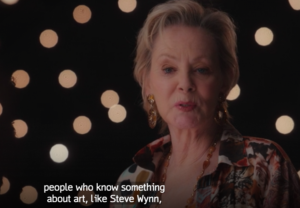
No. 2: Vegas contracts don’t work like this
The first season’s plot hinges on the idea that Vance, who continues to attract full audiences as shown by the camera sweeps across the crowd, could be instantly evicted from a theater by a capricious owner-operator.
Despite the strange notion that dropping a successful act like Pentatonix is a wise business decision in this universe, it’s simply impossible that such a move would happen suddenly, catching the star off-guard over lunch.
For several episodes, Vance is able to prevent her dismissal, but Ghilain replaces her Strip billboard with a disrespectful one that displays her promoting the resort’s buffet. However, this is an unlikely scenario. The promotional material produced by the resort is part of a talent contract that, at least for Siegfried & Roy, Cirque du Soleil, and Danny Gans, clearly defines the wording and dimensions of their billboards.
After Ghilain eventually fires Vance, she discovers this from him the morning following their night together, naturally. He informs her that she will discover something shocking in that day’s Las Vegas Review-Journal.
She fires back stating she has a contract, but he retaliates by saying that her management has already accepted his buyout proposal. The notion that a celebrity’s agent can make such definitive choices without ever consulting her, much less obtaining her consent, is absurd.
What about the fans who purchased tickets months ahead and arranged their travel accordingly? Certainly not.
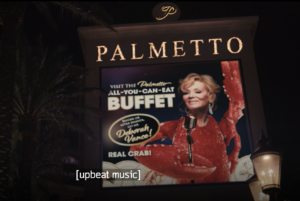
No. 3: Vegas media doesn’t work like this
Despite never being the leading newspaper in Las Vegas and no longer being a full-service, stand-alone publication since 2005, the Las Vegas Sun is continually depicted in Hollywood’s Vegas-themed fiction for some reason.
These days, it’s just a modest four- or possibly eight-page section within the Review-Journal. However, there it is, displayed next to the Wall Street Journal, New York Times, and L.A. Times for Vance to peruse with her Sunday morning coffee.
The morning following Vance’s last performance, where she abandoned her typical comedy for a more heartfelt storytelling session, those around her rushed to prevent her from seeing the negative newspaper reviews.
However, local media does not review Vegas shows in that manner. An exclusive, invite-only audience for a final show of this kind would likely appreciate a unique, more intimate performance over the usual comedy.
Regardless of the situation, no one in the local press would hurry to criticize the final performance of a Las Vegas icon. It’s futile; tickets are no longer available, so why verbally attack a departing, cherished legend? Besides, wouldn’t she receive a Google alert or a push notification? Who relies on the morning paper these days?
No. 4: Smoking, smoking everywhere
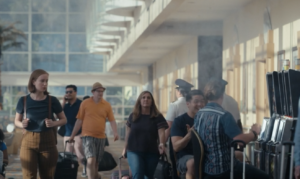
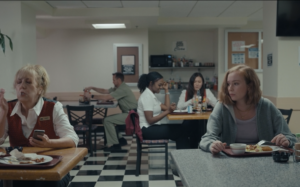
As soon as Ava sets foot in Vegas, audiences witness individuals smoking cigarettes in various public areas, particularly at airport slot machines and in the Palmetto’s staff cafeteria. A gruff-voiced grump in the cafeteria informs her, “The non-smoking section is over there.”
Since the Nevada Clean Indoor Air Act was implemented in 2006, smoking has been prohibited in public spaces or places where food is served. This includes almost all areas of the Las Vegas airport and definitely all dining facilities.
Currently, the only public locations in the state where it is legal to smoke or vape are:
- Casino floors
- Bars that operate independently where minors are not allowed
- Where food service is absent
- Strip clubs
- Brothels
- Retail tobacco stores
- Trade show floors related to tobacco conventions
No. 5: Dealers don’t make house calls
In “Hacks,” Vance enjoys the luxury of having a personal blackjack dealer who visits her mansion, allowing her to gamble comfortably at home.
This is not something that exists. Similarly, people at blackjack tables proclaiming they are “all in” is also not a thing.
No. 6: Oy Vegas with the cliches
In just the opening episode of “Hacks,” we catch sight of an overweight Elvis impersonator, clad in a polyester suit, riding a scooter on the pavement. We’re subjected to complaints about the temperature reaching 111 degrees, even though a CNBC ticker indicates it’s May – a month that’s never this hot. Moreover, we witness a woman sipping a yard-long beverage, all while holding a sobbing infant in a casino elevator at the mere hour of 10 a.m.
The situation never improves. The honeymoon suite at what is supposed to be one of the finest resorts in Vegas has mirrors on the ceiling. Contrarily, a cocktail waitress is dispensing free drinks at the airport’s slot machines, something that does not usually occur.
A bride and groom are having a shotgun wedding at a drive-through chapel, without obtaining a marriage license from city hall.
The area of Vegas away from the main strip is so appealing to rednecks that a gun shop and a pizza joint are neighbors and the wifi password is “Lock Her Up”. Ava voices her frustration to someone, saying, “I can’t write in my room due to the overly loud sexual activity from my neighbors, and the business center is more akin to a drug-filled den.” Comparatively, actual resort business centers make libraries appear as chaotic environments.
Here’s the final blow: A scene unfolds where a gambler and con artist, pushed to his limits, shatters his hotel window and takes a deadly plunge. A security guard informs Ava, “Yes, it’s quite common. Individuals arrive here, squander their cash on narcotics and prostitutes, have a wild time and then, suddenly – you have to bring in a wet vacuum. It’s a disaster.”
Making fun of suicide is not only cruel but also false in this context. While it’s true that Nevada has a relatively high suicide rate, the notion of individuals jumping from Strip resorts is incredibly uncommon. This is primarily because the windows in these resorts do not open and breaking them would likely require a significant weapon.
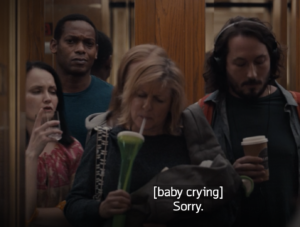
No. 7: Vegas geography doesn’t make sense
In “Hacks,” it appears that the Palmetto is located where the Palazzo is, judging by the resort’s exterior and the use of the Palazzo font for the Palmetto’s marquee.
Why is Deborah Vance departing from her show and heading north past the Bellagio in the opening episode, en route to the private jet terminal adjacent to Reid International Airport?
Additionally, there are instances when looking out of the Palmetto’s windows, one can see the resort situated next to both the Excalibur and Circa hotels. However, these hotels are a minimum of five miles apart, with Circa not being located on the Strip.
At a street-naming ceremony in front of the Las Vegas Convention Center, an Express Men shop is located where there should be acres of parking.
At one point, Deborah and Ava experience a flat tire roughly 15 minutes north of Primm on “Las Vegas Boulevard,” a desolate two-lane highway. This scenario may have been more common before the 1960s when the Los Angeles Highway passed through the desert to Southern California.
Since that time, Interstate 15 has been introduced. Before Deborah and Ava make another trip to Vegas, the writers of “Hacks” should use this highway to explore and gain a better understanding of the city they confidently write about.

